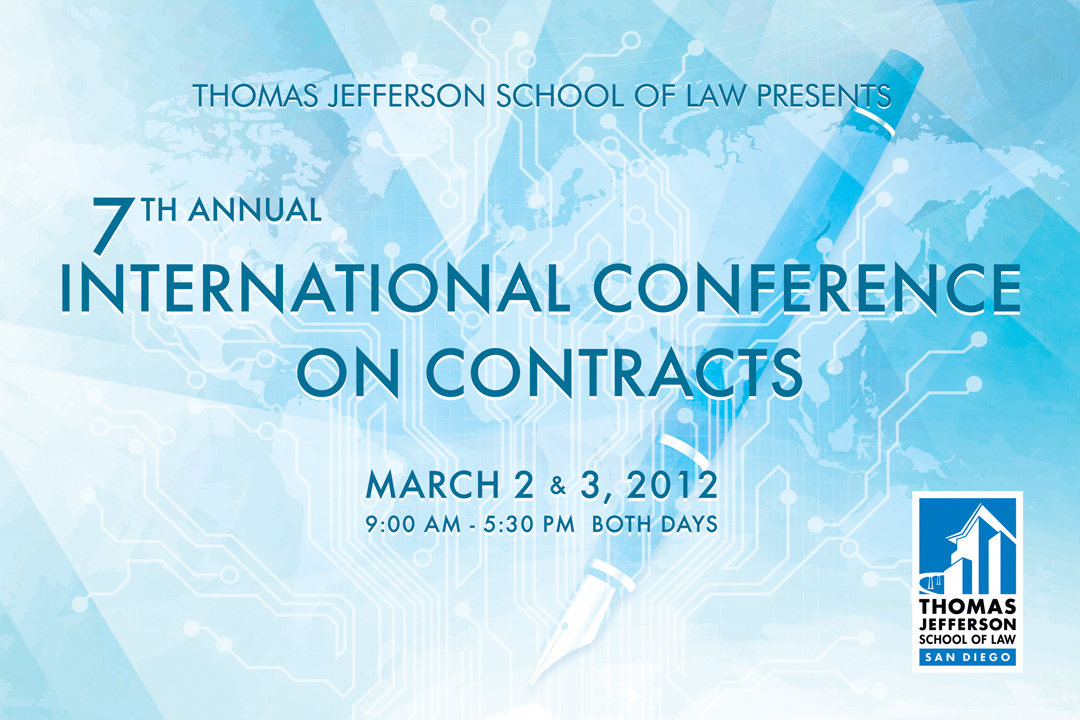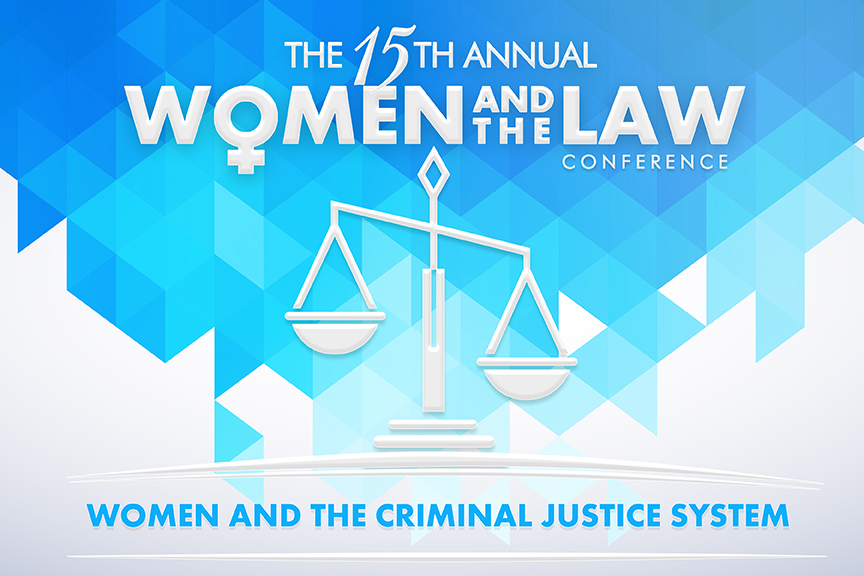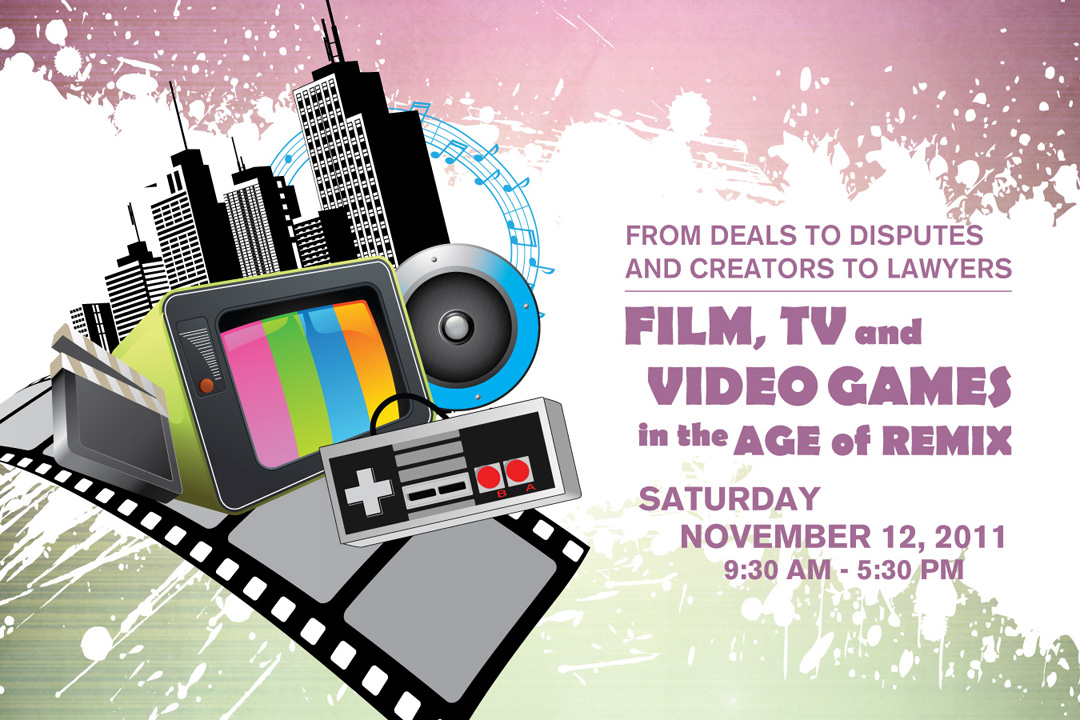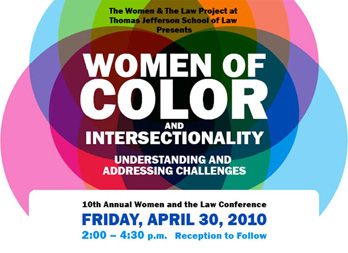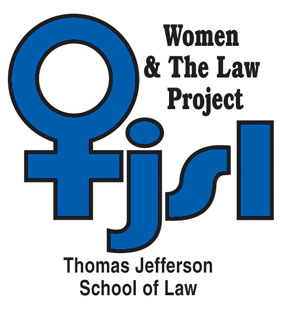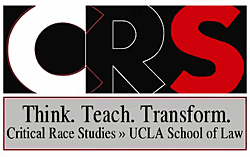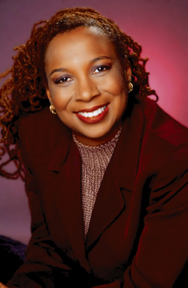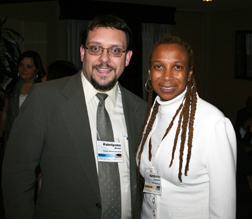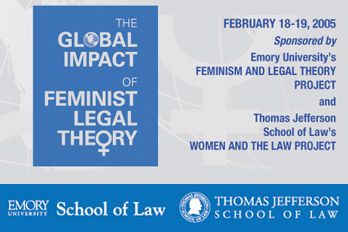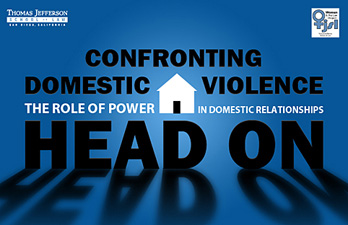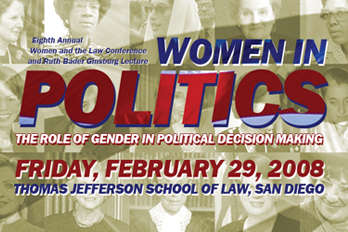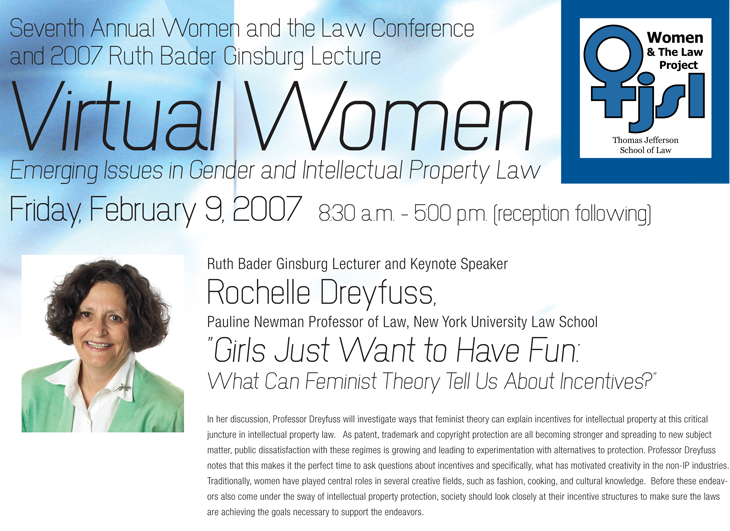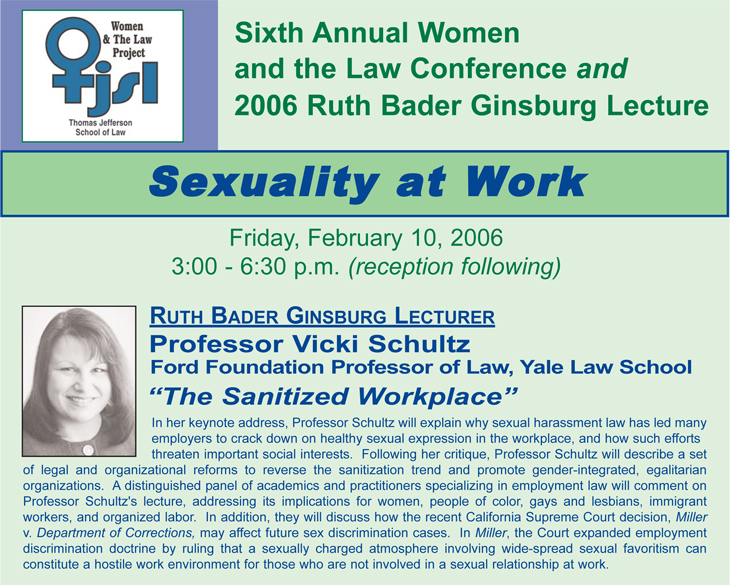The Seventh Annual Women and the Law Conference, “Virtual Women – Emerging Issues in Gender and Intellectual Property Law,” held at Thomas Jefferson School of law on Friday February 9th drew nearly 100 attendees.
The conference was organized by Thomas Jefferson Professors Julie Cromer and Sandra Rierson and was jointly sponsored by The Center for Law, Technology and Communications and the Women and The Law Project, at the Thomas Jefferson School of Law.
“I was thrilled that the talented Virtual Women panelists so vividly demonstrated the interesting and entertaining intersection of intellectual property law and feminist legal theory,” said Professor Cromer. “Panelists treated audience members to lively multimedia presentations, demonstrating or questioning arguably disparate treatment in diverse areas such African textiles, well-known trademarks, massive multi-player online role-playing games, African-American music, and internet pornography.”
New York University Law School Pauline Newman Professor Rochelle Dreyfuss, was the Ruth Bader Ginsburg lecturer and keynote speaker. Her address, “Girls Just Want to Have Fun: What Can Feminist Theory Tell us About Incentives,” explored the role of women in the scientific world and the incentives – or disincentives they face the production of their intellectual property (IP.)
“Professor Dreyfuss delivered a thoughtful lecture,” said Professor Julie Cromer. “It recognized the potentially disparate treatment of women in and by the intellectual property field, cautioned the audience to consider carefully whether any gender-specific impact exists.”
“Why are there any woman scientists at all?,” asked Professor Dreyfuss as she described how many women are marginalized or rendered invisible in the scientific profession – and often denied the conventional rewards that their male counterparts enjoy.
Professor Dreyfuss spoke from personal experience, as a former scientist herself, recounting how she would raise her hand at scientific conferences, never to be called on. At one such conference she noticed that another female scientist got called on and afterwards she asked the woman why she had been allowed to ask a question. The woman’s reply? “Because I won the Nobel Prize.”
“Girls just want to have fun,” Professor Dreyfuss said, “but it’s less fun than they thought when they discover that others are making money off their production.” Too often, the payoff for women is “just the joy of doing the work” and in some fields – women’s contributions in Intellectual Property are minimalized.
Professor Dreyfuss also pointed out that the total of patents held by men far outnumbers those held by women.
A number of other issues related to the “Virtual Women” theme were explored in depth in the four discussion panels which rounded out the conference.
The first panel, “What a Girl Wants: The Theoretical Underpinnings of Gender and IP,” included Professor Doris Estelle Long of the John Marshall Law School, who presented her paper “Women’s Art, Women’s Truth: Gender Discrimination and the Battle to Protect Traditional Knowledge.”
Dr. Carys J. Craig, Assistant Professor, Osgoode Hall Law School, York University presented "Beyond Authors v. Public: Relational Authors and the Public Interest."
Ann Bartow, Associate Professor, University of South Carolina School of Law, presented her paper, “Women in the Web of Secondary Copyright Liability and Internet Filtering.”
And Professor Cheryl Preston, J. Reuben Clark School of Law, Brigham Young University, presented “Internet autonomy and Intimacy.”
The second panel, titled: Material Girl: The Culture of Gender and IP. Included Dr. Boatema Boateng, Assistant Professor, UCSD School of Communications. She presented “It’s These Same women! Gender, Cultural Appropriation and Intellectual Property Law in Ghana.” Her presentation included examples of the colorful hand-designed cloth produced by women in Ghana.
Thomas Jefferson’s Associate Professor Kevin J. Greene presented “IP at The Intersection of Race and Gender – or, Lady Sings the Blues.”
“My Fair Ladies, Sex, Gender and Fair Use in Copyright.” was the title of Georgetown Law School Associate Professor Rebecca Tushnet’s presentation.
Christine Haight Farley, Associate Professor, American University, Washington College of Law presented “The Feminine Mystique of Brands”
She Blinded Me with Science: Gender Issues in Patent Law, was the title of the third panel, which included University of Minnesota Professor Dan Burk’s paper “Do Patents Have Gender?”
Michele Goodwin, a professor at DePaul College of Law, presented “Xerox Babies: Race, Power, Private ordering and Procreative Freedom.”
Eileen Kane, Associate Professor, Penn State Dickinson Law School “Molecules and Conflict: Cancer, Patents and Women’s Health.”
American Justice School of Law Professor Malla Pollack, Professor, presented “Towards a Feminist Theory of the Public Domain, or the Gendered Scope of United States’ Copyrightable and Patentable Subject Matter”
The fourth panel, She Works Hard for the Money: From the Practitioners’ Point of View, featured Adrian Pruetz, a partner at Quinn Emanuel Urquhart Oliver & Hedges, who discussed “From Dolls to DNA: Building a Career in IP.”
he was joined by Mallary De Merlier, a partner at Knobbe Martens Olson & Bear, wh0 presented “The Life Work Balance for Practicing Women in IP.”
Finally, Richa Nand, In-House Counsel at Cytori Therapeutics, Inc., discussed “IP Practice From an In-House Perspective.”
All of the panels resulted in thought-provoking and stimulating dialogue and defined the issues that practitioners of intellectual property law are facing and will face when gender is a factor.
Professor Julie Cromer summed up the 7th Annual Women and the Law Conference this way; “I think that Virtual Women brought together some of the great minds in intellectual property to examine intellectual property law through a pink lens to see what, if anything, changes in its applications.”

